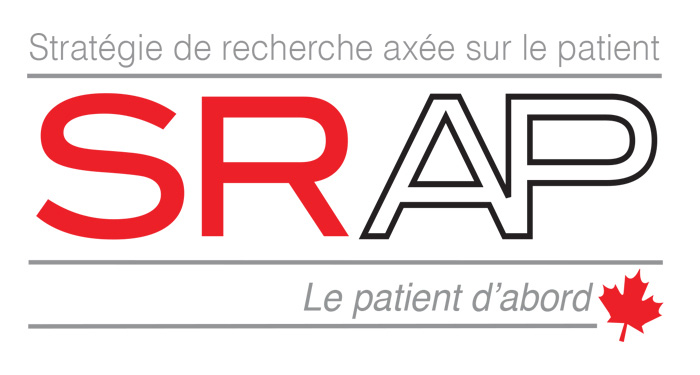This essay is part of a series of reflections on primary care during the pandemic presented by Réseau-1 Québec. The original essay published in French on May 11, 2020 is available here >>
Crises reveal both strengths and weaknesses. The French philosopher and sociologist Edgar Morin summarized the consequences clearly: “A crisis generates three different scenarios, but only the third should be encouraged: the desire to return to the world as it was, an escape into anything at all, and the emergence of new learning.”
It is crucial that we seize this opportunity, as another much more insidious and devastating crisis is unfolding because of the burden of chronic conditions and social inequalities in health. These also pose a threat to the economy and to social peace.
The crisis provoked by the COVID-19 pandemic has reminded us that complex situations require solutions validated by facts and science. It has also shown us the importance of having a broader conception of primary care, or the front line, in order to contain the emerging crisis.
Evolution of the front line
Fifty years ago, when the health and social services system was created, primary care was supposed to consist of family physicians and local health service centres (CLSCs), which would be the entry point to multidisciplinary team services for the treatment of individuals’ health problems, referral to specialized services when required, and a coordinated overall response to individuals’ needs. The rapid aging of the population and the rise in chronic conditions prompted the development of other services such as home care, adapted housing, and long-term care.
Over the following decades, the development of knowledge on the determinants of health demonstrated that three-quarters of a population’s health problems are influenced by environmental conditions, the quality of living environments, and healthy lifestyles. Research has shown that resulting chronic conditions can be prevented through a population-based approach that emphasizes disease prevention and health promotion through coordinated and integrated interventions. We now know that massive and sustained interventions starting in the first years of life, and timely responses to problems as they arise, can improve the life course of individuals and the health of the population.
Primary care can no longer be managed as simply the base level of a system whose resources are primarily invested in hospitals that provide specialized and superspecialized services. It needs to be conceptualized as a system in itself, serving a population in a given territory. This system is responsible for implementing government policies and programs at the local and regional levels by coordinating comprehensive and continuous services. The range of primary care services includes prevention and health promotion interventions within the provincial public health program, general health services, social services, community pharmacies, home care services, support for informal caregivers, housing adapted to support mobility and autonomy, and long-term care. The primary care system should refer patients to specialized services while providing support and care management over the medium and long term.
A new front line
From this standpoint, the primary care system should be conceived of as a consortium of public, socio-economic, and community partners, as well as citizens engaged in the community. This system is based on stakeholders’ geographic proximity and shared dynamics rather than on administrative boundaries. The territory constitutes a locus of network interaction and interdependencies among partners. Boundaries can shift depending on the deployment of activities. The consortium’s governance must make it possible to move from a sectoral, top-down approach to one that is territorial and interactive. It is the foundation for decentralizing decision-making and implementation powers to the local and regional levels.
Coordinating the consortium implies recognizing the partners’ specific responsibilities and expertise and identifying common problems. Its aim must be to develop objectives and actions collectively, and to seek solutions to common problems through collaborative means. As such, it needs to support the pooling of ways and means, as well as new resource allocation. The coordination of services and interventions ensures a smooth and harmonious process. In the Quebec context, the CLSC appears to be the entity that is qualified to undertake this coordination.
Individually, partners remain responsible and accountable for the outcomes of their specific activities. Together, they must aim for a collective impact on the health and well-being of the territory’s population. To this end, they require:
- A shared action plan with concerted actions;
- A common evaluation framework that involves sharing information;
- Complementarity in their activities;
- Ongoing communication based on a relationship of trust among the partners and with the community;
- A method and the means for monitoring and for data collection;
- A competent and dedicated team.
Funding for the consortium and its partners should be multi-year, in three to five year cycles, to ensure sustainability. Financial and technical support should promote the development of workers’ competencies and foster innovation to ensure continuous adaptation and improvement in response to changing needs, opportunities, and outcomes.
Perspective
The deployment of a primary care system as outlined above is a major undertaking, but several experiences in Quebec and elsewhere have established foundations on which we could build. It would be risky to focus only on a few isolated parts of the consortium concept, such as family medicine groups (FMGs) or seniors’ residences. As with a chain, the system will only be as strong as its weakest link.
Another concern is the competition for available resources that can be expected after the crisis, including the risk of austerity policies due to short-term pressures. Yet investing in health promotion, disease prevention, and front-line services will have a significant positive economic impact in the medium to long term. However, we have both the means and the capacity to pursue a sustainable development path to meet the needs of the population today and to protect the future for generations to come.
This will require foresight and political will.
Jean Rochon, Professor emeritus, Université Laval, former Minister of Health and Social Services of Québec (1994–1998)






